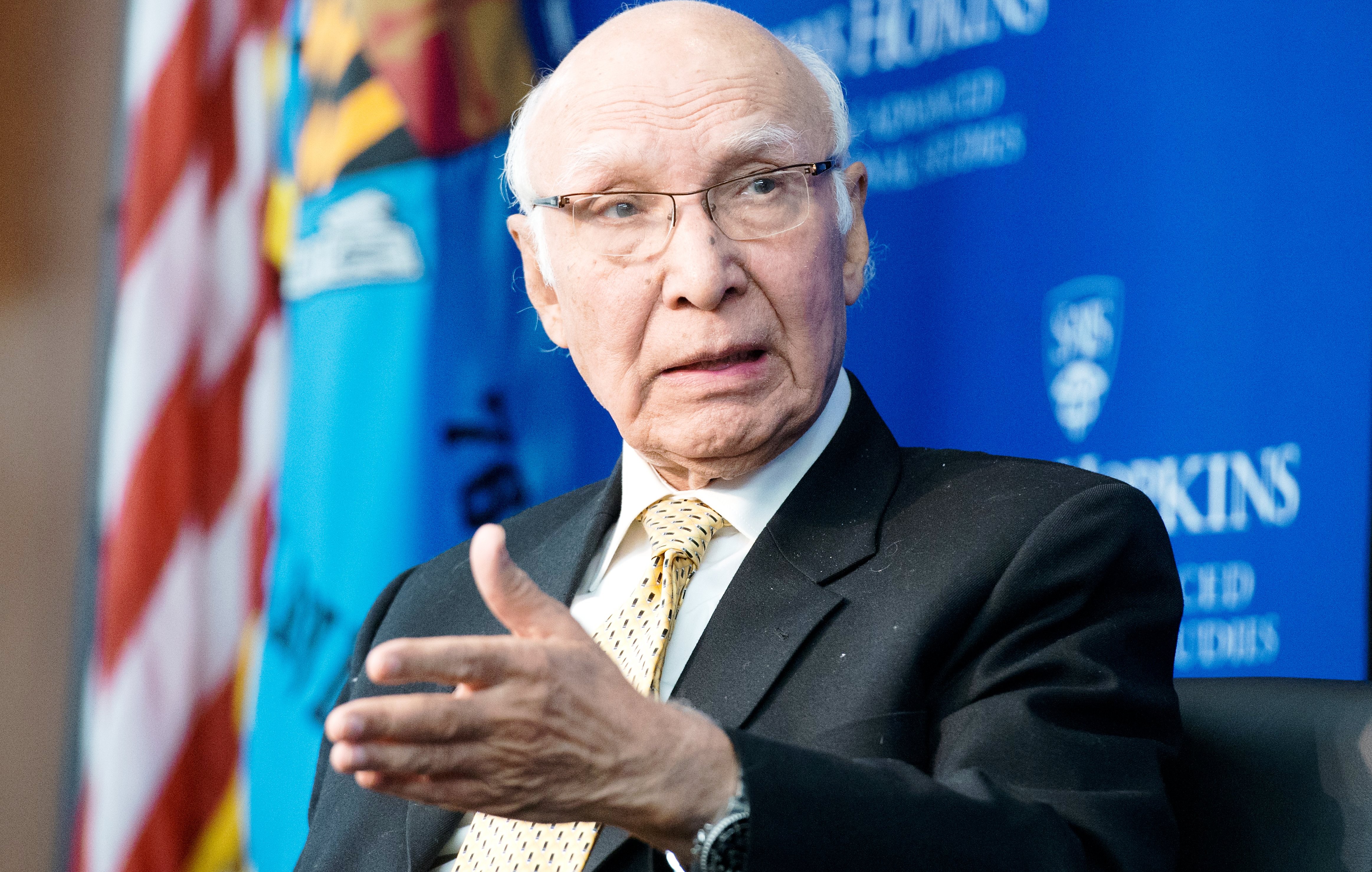Adviser to the Prime Minister on Foreign Affairs Sartaj Aziz on Tuesday reaffirmed Pakistan’s commitment not to transfer weapons of mass destruction to states or non-state actors.
Delivering a keynote address on the implementation of UN Security Council resolution 1540 in Islamabad, Aziz said as a responsible nuclear state, Pakistan will continue to partner with international community to prevent non-state actors from acquiring these weapons.
The adviser underscored the need for striking a balance between advancing the goals of non-proliferation and facilitating access of developing countries to strategic and dual-use goods, materials and technologies for peaceful purposes under appropriate safeguards.
In this regard, Aziz expressed Pakistan’s willingness to share its expertise and provision of technical assistance to developing countries in the region and beyond.
He underlined that states which posses advanced capabilities should have an equal opportunity to participate in and contribute to the export control governance architecture.
In this context, he highlighted Pakistan’s credentials and expertise to become a member of the Nuclear Suppliers Group (NSG), while emphasising the need for a transparent, objective and non-discriminatory criteria for the cartel’s membership of non-NPT applicants.
The two-day regional seminar, organised by the Ministry of Foreign Affairs in collaboration with UN Office for Disarmament Affairs, brings together 13 countries from South and Central Asia, China, Russia, representatives of the 1540 Committee Group of Experts and international organisations including the IAEA, OPCW and Interpol.
The seminar aims to promote regional cooperation for effective national implementation of resolution 1540 including through sharing of best practices and national experiences.
Resolution 1540, adopted by the Security Council in 2004, is one of the important instruments in the global non-proliferation architecture as it seeks to prevent non-state actors from acquiring weapons of mass destruction.
 Pakistani national security adviser Sartaj Aziz speaks at the Johns Hopkins School of Advanced International Studies (SAIS) in Washington on January 28, 2014. AFP PHOTO/Nicholas KAMM
Pakistani national security adviser Sartaj Aziz speaks at the Johns Hopkins School of Advanced International Studies (SAIS) in Washington on January 28, 2014. AFP PHOTO/Nicholas KAMM 